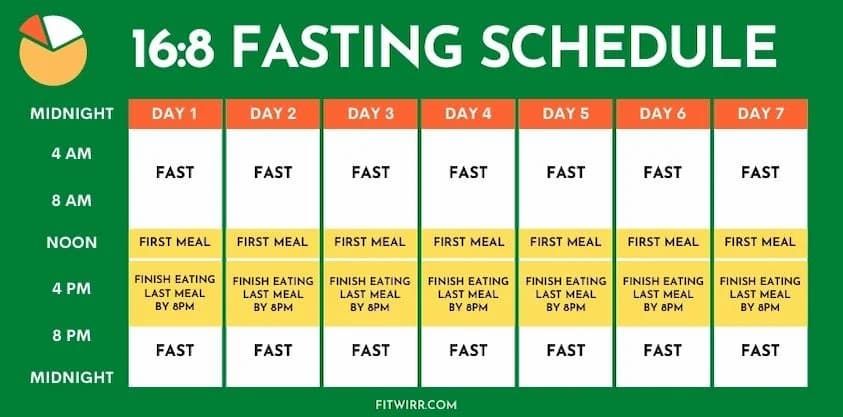Intermittent Fasting: An In-Depth Look
Overview of Intermittent Fasting
Intermittent fasting (IF) is a dietary strategy that cycles between periods of eating and fasting. It doesn’t specify which foods to eat but rather when to eat them. Popular IF methods include the 16/8 method (16 hours fasting, 8 hours eating), the 5:2 diet (eating normally for five days and significantly reducing calorie intake for two non-consecutive days), and the Eat-Stop-Eat method (24-hour fast once or twice a week).
Facts About Intermittent Fasting
- Health Benefits: Studies suggest that IF can aid weight loss, improve metabolic health, enhance brain function, and increase longevity.
- Autophagy: Fasting triggers autophagy, a process where cells remove damaged components, potentially reducing the risk of diseases like cancer and Alzheimer’s.
- Insulin Sensitivity: IF can improve insulin sensitivity, which helps control blood sugar levels and reduce the risk of type 2 diabetes.
- Inflammation Reduction: IF may reduce inflammation, which is linked to various chronic diseases.
- Human Growth Hormone (HGH): Fasting can increase HGH levels, aiding fat loss and muscle gain.
- Heart Health: IF may improve various risk factors for heart disease, including cholesterol levels, blood pressure, and inflammatory markers. SUGGESTED: Mobile Living Solutions: Embracing a Nomadic Lifestyle and effects
Dos and Don’ts of Intermittent Fasting
Dos
- Stay Hydrated: Drink plenty of water and non-caloric beverages like herbal tea and black coffee.
- Balanced Diet: Ensure your meals are nutritious, incorporating a balance of proteins, fats, and carbohydrates.
- Pay attention to your body by observing its signals of fullness and hunger. in case you feel sick, break your fast.
- Ease into It: Start with shorter fasting periods and gradually increase the duration as your body adapts.
- Stay consistent: Stick to a regular fasting schedule to help your body adjust.
- Monitor Your Health: Keep track of any changes in your health and consult a healthcare professional if necessary.
Don’ts
- Overeat During Eating Windows: Avoid consuming excessive calories during your eating periods; this can negate the benefits of fasting.
- Ignore Nutritional Needs: Don’t neglect essential nutrients; ensure your diet remains balanced and healthy.
- Fast When Sick or Stressed: Avoid fasting when you’re ill or experiencing high stress, as your body needs additional nutrients and energy.
- Expect Immediate Results: Be patient, as the benefits of intermittent fasting may take time to manifest.
- Engage in Intense Workouts: Avoid high-intensity workouts during fasting periods, especially if you’re not accustomed to fasting.
- Skip Meals Compulsively: Don’t force yourself to skip meals if it causes significant discomfort or health issues.
Reviews of Intermittent Fasting
Positive Reviews
- Weight Loss: Many individuals report significant weight loss and body fat reduction with intermittent fasting.
- Mental Clarity: Some users experience improved mental clarity and focus during fasting periods.
- Energy Levels: Despite initial fatigue, many people find their energy levels stabilize and even increase over time.
- Simplicity: IF is praised for its simplicity, as it doesn’t require calorie counting or specific meal planning.
Negative Reviews
- Hunger and Irritability: The initial stages of fasting can cause hunger, irritability, and mood swings.
- Social Challenges: Fasting can interfere with social activities and family meals.
- Not Suitable for Everyone: People with certain health conditions, pregnant women, and those with a history of eating disorders may find IF unsuitable.
- Possibility of Overeating: Some people have a tendency to overeat during mealtimes, which can cause gastrointestinal distress and weight gain.
Conclusion
Intermittent fasting offers numerous health benefits and is a flexible dietary approach for many. However, it needs careful reflection and commitment to best practices. Consulting with a healthcare professional before starting IF is recommended to ensure it’s suitable for your individual health needs. SUGGESTED: Tiny House Movement Article: Who is behind it? What happened?
